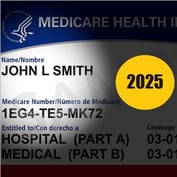The Senate Finance Committee will ramp up Affordable Care Act change talk next week, by holding a hearing on Seema Verma at 10 a.m. Thursday.
Verma, an Indiana health policy consultant, is President Donald Trump’s pick to be the next administrator of the Centers for Medicare & Medicaid Services. CMS is the federal agency directly in charge of Medicare, Medicaid, the ACA exchange system, HealthCare.gov and the ACA rules and programs that affect the traditional commercial health insurance market.
As the head of CMS, Verma, for example, would have a role in deciding how insurers should handle health insurance agent and broker compensation payments when filing ACA medical insurance medical loss ratio reports.
The Senate voted 52-47 at 1:46 a.m. Thursday to confirm Tom Price of Georgia, an orthopedic surgeon who has been representing Georgia in the House, to be Trump’s secretary of the U.S. Department of Health and Human Services. HHS is the department in charge of CMS.
Related: Senate confirms Price as health secretary as ACA fight nears
The Senate is preparing to vote on confirming Steven Mnuchin, an investment banker who is Trump’s pick to the next Treasury secretary, Monday. As the cabinet secretary in charge of the Internal Revenue Service, Mnuchin would also play a major role in shaping ACA policies, and any post-ACA policies.
The Senate Health, Education, Labor and Pensions Committee is preparing to hold a hearing on Trump’s Labor secretary nominee, Andrew Puzder, at 10 a.m. Thursday, while Verma is taking questions at the Senate Finance hearing. Puzder, a restaurant company executive, would be yet another major Trump administration health policy player.
But Verma is the only one of those four people who has direct experience with government health insurance programs.
Seema Verma talked about Indiana’s Medicaid program changes in July 2013 at the OtherCare: Liberation & Innovation in American Healthcare conference in Ann Arbor, Michigan. Rebel MD posted a video of the session on YouTube in November.
HIP Plus POWER accounts
Seema Verma has a bachelor’s degree from the University of Maryland at College Park and a master’s degree in public health from Johns Hopkins University. She started out working as a planner in the Health & Hospital Corp. of Marion County in Indiana.
As a consultant, Verma helped Indiana set up the Healthy Indiana Plan 2.0. The plan provides Medicaid coverage for state residents ages 19 to 64 to earn less than 138 percent of the federal poverty level who would do not qualify for Medicare or traditional Medicaid.
For eligible people who pay a monthly premium of a few dollars per month for the HIP Plus version of the plan, Indiana will put $2,500 in a Personal Wellness and Responsibility Account, or POWER account.
If HIP Plus enrollees pay their premiums and have medical expenses under $2,500, they can roll their remaining contributions over to reduce the required contributions for the following year. The rollover amount will be doubled if the enrollees get all recommended preventive services.








 February 10, 2017 at 12:57 PM
February 10, 2017 at 12:57 PM










